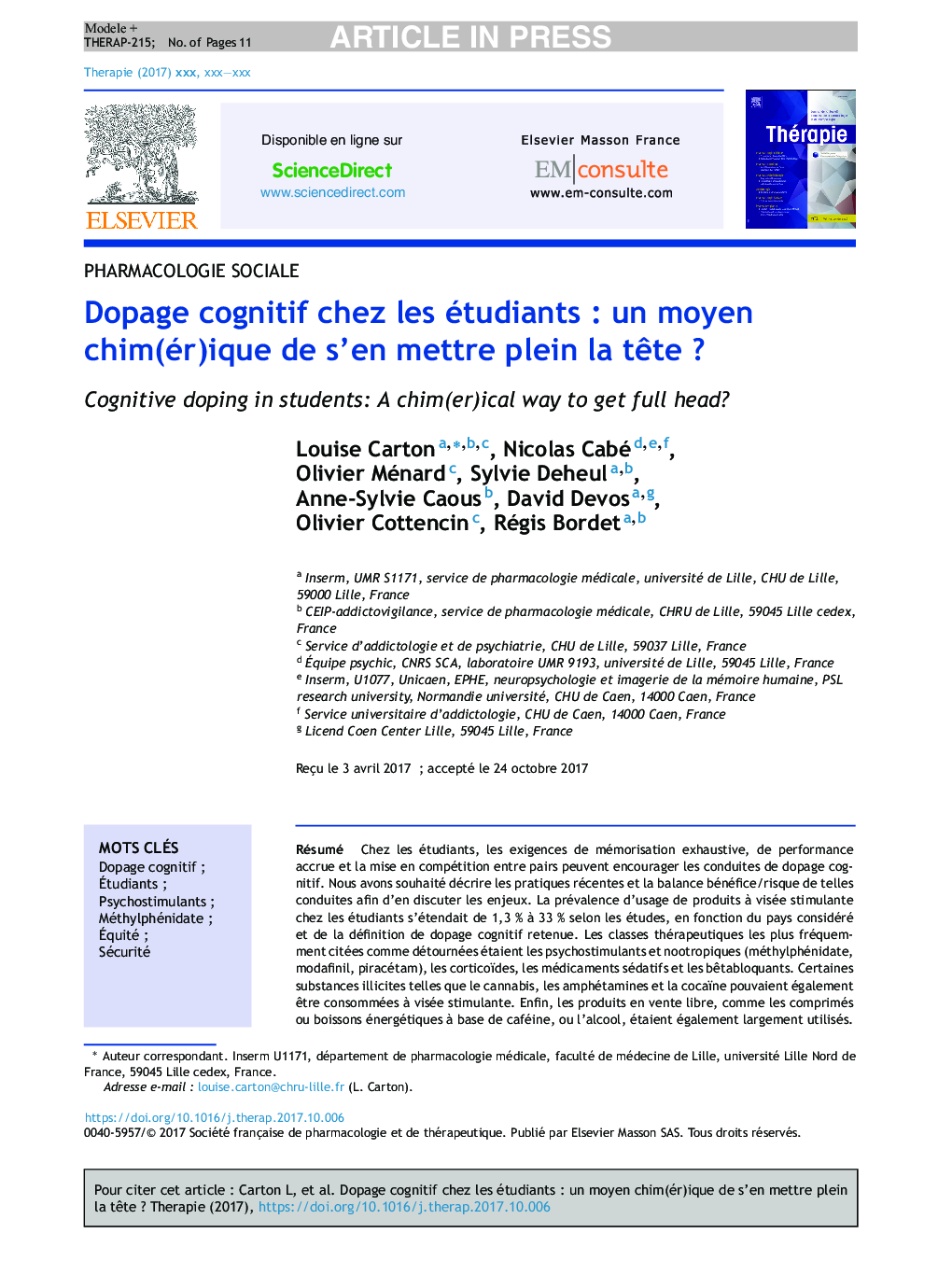| کد مقاله | کد نشریه | سال انتشار | مقاله انگلیسی | نسخه تمام متن |
|---|---|---|---|---|
| 8962391 | 1646577 | 2018 | 11 صفحه PDF | دانلود رایگان |
عنوان انگلیسی مقاله ISI
Dopage cognitif chez les étudiants : un moyen chim(ér)ique de s'en mettre plein la tête ?
دانلود مقاله + سفارش ترجمه
دانلود مقاله ISI انگلیسی
رایگان برای ایرانیان
موضوعات مرتبط
علوم پزشکی و سلامت
داروسازی، سم شناسی و علوم دارویی
فارماکولوژی، سم شناسی و اقلام دارویی (عمومی)
پیش نمایش صفحه اول مقاله

چکیده انگلیسی
For students, the pressing demands for memorization, top-level performance, and peer competition create an environment favorable for pharmaceutical cognitive doping behavior. We aimed to describe recent practices and the benefit / risk ratio of such behavior and to discuss the issues at stake. The prevalence of pharmaceutical cognitive doping among students has been reported from 1.3% to 33% across studies, with variations depending on country and definition of pharmaceutical cognitive doping. The therapeutic classes most frequently cited as being diverted for doping purposes are psychostimulants and nootropics (methylphenidate, modafinil, piracetam), corticosteroids, sedative drugs and beta-blockers. Some illegal substances such as cannabis, amphetamines and cocaine are also consumed in order to boost mental function. Finally, over-the-counter products, such as caffeine-based tablets or energy drinks, or alcohol, are also widely used by students whose motivations involve enhanced performance, concentration, memory, and staying awake during the revision and exam period. However, the expected (often fantasized) effectiveness of these products does not correspond to the reality of a modest controversial impact on cognitive performance. There appears to be an emerging profile of the student more inclined to doping behavior. Cognitive doping thus raises the question of its regulation, opening a debate opposing, on one hand, individual freedom and supposed collective benefits and, on the other hand, health consequences, educational (in)equality, and the risk of tarnished academic success. Strengthening school and university medicine, through prevention campaigns and the identification of subjects at risk, is essential to limit the extent, risk, and damages associated with such practices.
ناشر
Database: Elsevier - ScienceDirect (ساینس دایرکت)
Journal: Thérapie - Volume 73, Issue 4, September 2018, Pages 319-329
Journal: Thérapie - Volume 73, Issue 4, September 2018, Pages 319-329
نویسندگان
Louise Carton, Nicolas Cabé, Olivier Ménard, Sylvie Deheul, Anne-Sylvie Caous, David Devos, Olivier Cottencin, Régis Bordet,